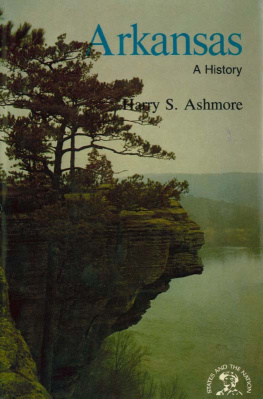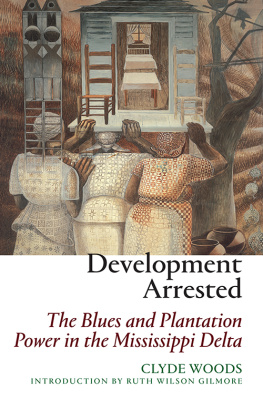Published with the assistance of the V. Ray Cardozier Fund
Published by Louisiana State University Press
Copyright 2011 by Louisiana State University Press
All rights reserved
Manufactured in the United States of America
First printing
Designer: Michelle A. Neustrom
Typeface: Whitman, text; Baurer Bodoni, display
Printer: McNaughton & Gunn, Inc.
Binder: Acme Bookbinding
Library of Congress Cataloging-in-Publication Data
Whayne, Jeannie M.
Delta empire : Lee Wilson and the transformation of agriculture in the new South / Jeannie Whayne.
p. cm. (Making the modern South)
Includes bibliographical references and index.
ISBN 978-0-8071-3855-7 (cloth : alk. paper) ISBN 978-0-8071-3856-4 (pdf) ISBN 978-0-8071-3857-1 (epub) ISBN 978-0-8071-3858-8 (mobi)
1. Wilson, Lee, 18651933. 2. FarmersArkansasMississippi CountyBiography. 3. Plantation owners ArkansasMississippi CountyBiography. 4. BusinessmenArkansasMississippi CountyBiography. 5. AgricultureArkansasMississippi CountyHistory. 6. PlantationsArkansasMississippi CountyHistory. 7. Plantation lifeArkansasMississippi CountyHistory. 8. Social changeArkansasMississippi County History. 9. Mississippi County (Ark.)History. 10. Mississippi County (Ark.)Biography. I. Title.
F417.M58W47 2011
976.705092dc22
[B]
2011013606
Two previously published essays of mine proved useful in the writing of Delta Empire. The Changing Face of Share-cropping and Tenant Farming in the Twentieth Century (pages 4146 in Revolution of the Land: Southern Agriculture in the Twentieth Century, edited by Connie Lester [Starkville: Mississippi State University, 2002]) focused on the experiences of William Snake Toney, particularly on his ability to use his relationship with the Wilsons to his advantage, although only up to a point. Robert E. Lee Wilson and the Making of a PostCivil War Plantation (pages 95117 in Southern Elite and Social Change: Essays in Honor of Willard B. Gatewood [Fayetteville: University of Arkansas Press, 2002]) provided several background details, some of which called for revision in the later work, such as exactly how much acreage Wilson inherited.
The paper in this book meets the guidelines for permanence and durability of the Committee on Production Guidelines for Book Longevity of the Council on Library Resources.

Acknowledgments
T his book had its origins in a research paper I wrote for Steve Hahn at the University of California, San Diego, in the early 1980s. In that paper I engaged the historiography on the evolution of plantation agriculture and the emergence of the tenancy system in the postCivil War South, and I grappled with Lee Wilsons contradictory reputation regarding the treatment of black labor, a question that remains a major preoccupation in this book. When I began to think of dissertation topics, my mind naturally turned to the Wilson plantation, but a couple of insurmountable obstacles presented themselves, and then an encounter with a snake in the basement of a Mississippi County jail convinced me to look elsewhere for a dissertation topic. No company records existed, or so it seemed at the time, and a county official indicated that county records were unavailable to me. Oscar Fendler, a longtime attorney representing the Wilson family, gained me entry to the basement of the county jail so that I could examine the records discarded there. Thus began an adventure that Fendler, who died a few years ago, never tired of recalling, though he only heard the story from meI think. The jailer held a flashlight, a guard stood by with a rifle as two black prisoners in jail jumpsuits picked up the books and held them in the light for me to examine. Finding nothing of interest, I noticed another stack of books across the room and started to move toward them. Years later it occurred to me that the entire charadeaside from the snake which slithered by at that moment and could not have been choreographedwas intended to discourage me. It worked. I chose another topic.
As it happens, by the time I got to that basement, I was already disinclined to write on the Wilson plantation. I had visited the company offices only to find that apparently no company records existed, a fact that would greatly circumscribe any scholarly undertaking. After returning to Arkansas in 1990 as an assistant professor at the University of Arkansas, I encountered Mike Wilson, the head of the company, at a book signing in Mississippi County (thanks to Mary Gay Shipley of That Bookstore in Blytheville) for a book I co-edited with Willard Gatewood, Arkansas Delta: A Land of Paradox. By then Mike Wilson had decided that he wanted me to write a history of the Wilson plantation. I had some understandable misgivings. Any book I wrote, I explained to Mike, would be critical of certain aspects of the companys operation. He insisted he understood that and believed that it was important to cover all aspects of the companys history. He wanted the unvarnished truth, and I came to understand that he meant what he said. For example, I shared with him information about an encounter in 1932 between Mississippi County deputies working out of Wilson, Arkansas, and a black man, Virgil Branch. Lee Wilson had the deputies fired for their treatment of Branch, and I was interpreting that as one example of Wilsons benevolence. Mike corrected me. Branch worked for a man who represented an institution to which Wilson owed hundreds of thousands of dollars. Lee Wilsons response to the incident was entirely self-interested. I am enormously grateful to Mike for his commitment to the truth. Unfortunately, he died suddenly before I could put a finished copy in his hands. I dedicate this book to his memory.
Mike Wilson saw to it that a number of company ledgers were donated to the archives at the University of Arkansas, but this book would not have been possible had it not been for his later discovery of a treasure trove of correspondence files located in the company headquarters. Mike called me some time in the late 1990s to tell me that when workmen removed a malfunctioning air-conditioning unit to replace it, they discovered a false wall and a room full of boxes. Michael Dabrishus, then the director of the University of Arkansass Special Collections Division, helped arrange the donation of the papers to his division. After Mike Wilsons death, his brother Steve stepped to the helm of the company alongside his sister, Midge, and Mikes son, Perry. They provided additional information and assistance for which I am particularly grateful. The company records provide the basis of my understanding of the Wilson operation, but another important piece fell into place when Dr. Eldon Fairley, now also sadly deceased, of the Mississippi County Historical Society rescued the county records from the snake-infested basement of the Mississippi County jail and made them available to me at the historical societys museum in Osceola.
I have a number of other people to thank for their assistance in bringing this book to fruition. Elliott West, Randall Woods, Bob McMath, Charles Robinson, Mike Pierce, and Calvin White, all colleagues of mine in the history department at the University of Arkansas, commented on papers I presented to the departments Phi Alpha Theta chapter or elsewhere. I thank my chair, Lynda Coon, for her many kindnesses as I finished this project. Other friends at the university, especially those in the department and in the Faculty Senate, contributed in direct and subtle ways. I am particularly grateful to Chuck Culver for his assistance with early twenty-first-century statistics on agricultural production. I am deeply grateful to Margaret Peggy Guccione of the Geosciences Department for sharing her research on the sunk lands. I thank individuals like Ken Barnes and Ben Johnson who gave me opportunities to present papers at the Arkansas Association of College History Teachers and the Arkansas Historical Association. I am grateful to Fred Williams, Gil Fite, Claire Strom, David Danbom, Doug Helms, and others of the Agricultural History Society, where I gave presentations, and to Connie Lester and Jim Giesen, who invited me to speak at conferences at Mississippi State. Talks at Arkansas State University, thanks to invitations by Clyde Milner and Ruth Hawkins, gave me opportunities to present alongside Nan Woodruff and Grif Stockley, who provided cogent and thoughtful criticisms. And an invitation from David Stricklin and Bobby Roberts to speak at Central Arkansas Library Systems Butler Center in Little Rock and another to address a class at the Clinton School helped me to hone my arguments. I am grateful to my very good friend Carol Perel for extending an invitation to speak at the Cotton Museum in Memphis, which led to an introduction to Lee Wilson Wesson. Wesson provided some important information about his part of the Wilson family, which was most helpful. I thank the individuals at Crystal Bridges Museum of American Art who gave me an opportunity to make a presentation in concert with Bob Ford of Theater Squared. Bob wrote a play on an incident that took place on the Wilson plantation, an incident related to me by William Snake Toney of St. Louis, another person to whom I owe a great debt. An opportunity to present at a Rural Studies Conference in Brighton, England, enabled me to secure helpful comments from a very different group of scholars possessing an international perspective. The comments of scholars like Jarod Roll and Richard Follett greatly enriched this project.












